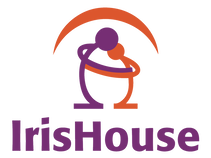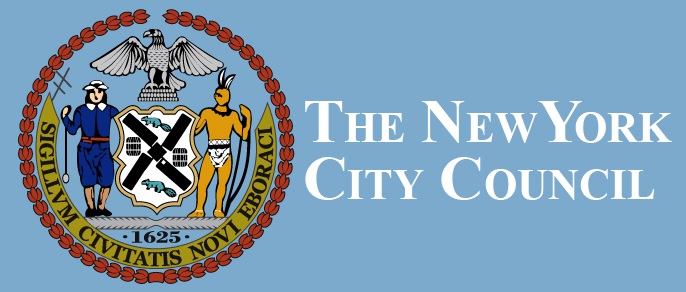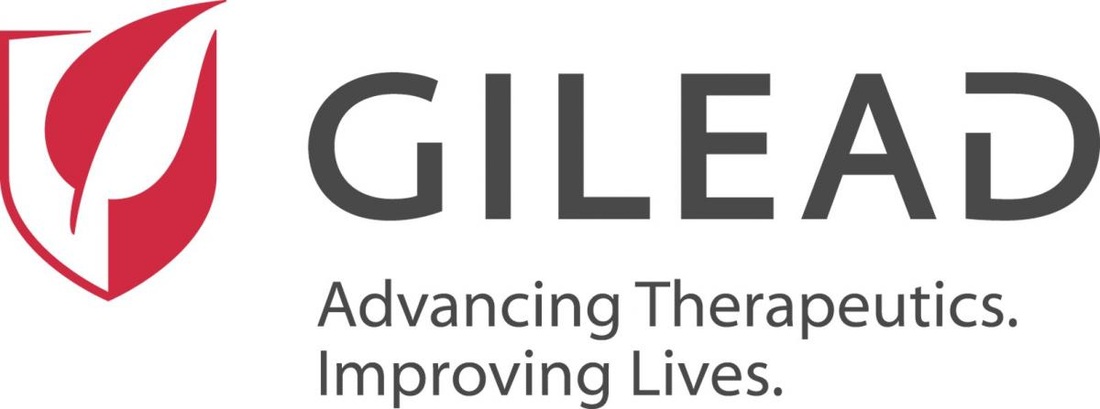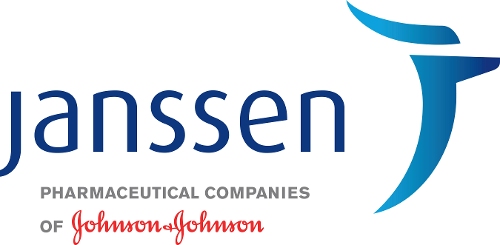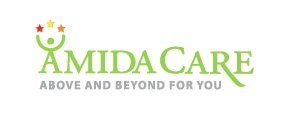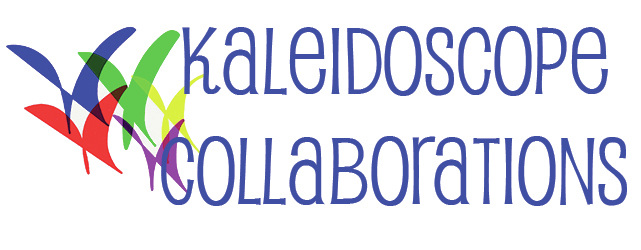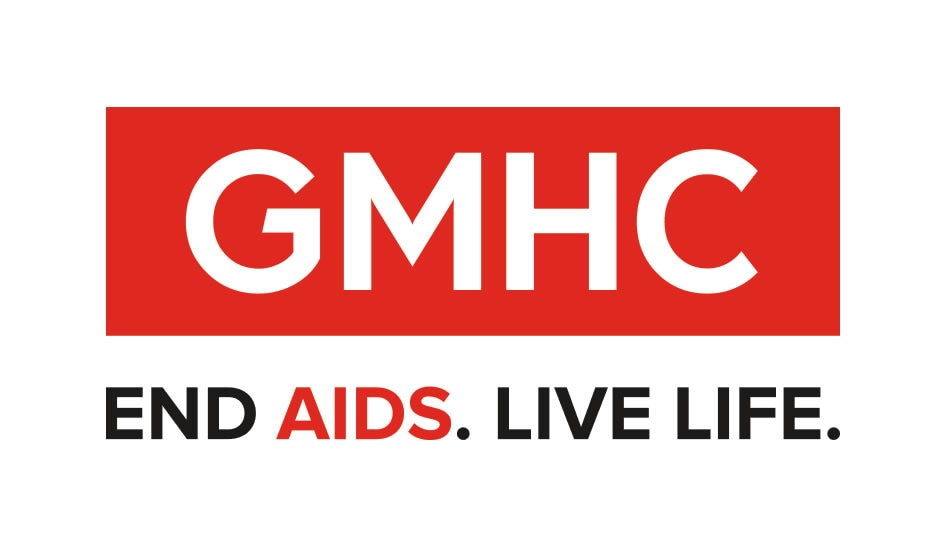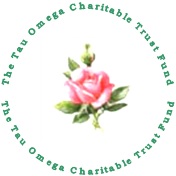2016 Summit Sponsors
2017 Summit
Planning Committee Summit Planning Committee Ingrid Floyd, Chair Iris House Ofelia Barrios Iris House Sandrine Blake AmidaCare Debra Bosier Iris House Emily Carson Bedford Stuyvesant Family Health Center Millicent Freeman NYC Department of Health Tanya Howe Iris House Stephane Howze AmidaCare Jennifer Irwin Institute for Advanced Medicine Mount Sinai Beth Israel Michael Barret Jones Iris House Krista Martel The Well Project Alexis Posey FPWA Donald Powell Exponents, Inc. Kimberly Richardson Iris House Nathaly Rubio-Torio Voces Latinas Derrick Wallace Iris House |
The 12th Annual Women as the Face of AIDS SummitResilient, Fierce and Wise!
The 12th Annual Women as the Face of AIDS Summit May 8, 2017 8:30 AM - 5:00 PM Bethel Gospel Assembly 2 East 120th Street, New York City PRE-REGISTRATION IS NOW CLOSED, BUT WALK-UP REGISTRATION IS AVAILABLE AT THE DOOR. Breakout Session Descriptions Session One: 10:45 AM to 11:45 AM
From Preparing for Death to Thriving in Life: 30 Years of Providing HIV/AIDS-related Legal Services
Lisa R. Edwards, Esq., Staff Attorney with Legal Aid Society’s HIV/AIDS Representation Project (“H/ARP”), moderator. Mildred Pinott, Former Supervisor, LAS H/ARP, Kate Wagner-Goldstein, Senior Staff Attorney, Legal Action Center and Terry McGovern, Interim Chair and Professor of Population and Family Health at the Columbia University Medical Center and Founder and former Executive Director of the HIV Law Project. One moderator and 4-5 other panelists will provide a brief history of how medical-legal services have addressed the needs of women living with HIV/AIDS over the last 25 years and will explore current challenges/gaps in service efforts, many of which result from funding poorly aligned to this phase of the epidemic. Attendees will have a more nuanced understanding of the role that legal advocacy has played in improving the social determinants of health for HIV+ women and will be motivated to advocate for changes in program funding and design to better meet the needs of women currently living with HIV or at heightened risk of becoming HIV+. The Intersectional Nature of Youth Activism Today
Tracy Harrison and Brianna Jones, Love Heals, and Brandon Castillo and Jose Benitez, Mobile Print Power We will be reviewing different youth efforts to create change in their communities including direct actions and campaigns from the last year as well as discuss cross-movement collaboration moving forward with a strong emphasis on intersectionality and the link between HIV rates, incarceration, racial and economic inequality, and housing. This will be a 5-person panel led by Love Heals Youth Advisory Council along with 2-3 other youth serving organizations doing action-oriented work. It Takes a Village for Linkage to Care
Toya Cook, MBA, Program Coordinator; Maria Jaca, Outreach Supervisor; Jose Santos, Patient Navigator; Ashima Mahajan, MPH, Program Evaluator, Harlem United Community AIDS Center By the end of the session, participants will be able to adapt and implement social network strategy (SNS) model, commonly used for HIV testing, using Peers and existing clients as recruiters to re-engage and link hard to reach or out of care HIV positive people to medical treatment. Harlem United implemented an intervention model that is designed to improve the timely entry, engagement, and retention in quality HIV primary care for Puerto Ricans living with HIV. This presentation outlines the program’s journey from using street-based outreach methods to implementation of Social Networking Strategy to access hard to reach Puerto Ricans living with HIV. This presentation aims to build the participants capacity to adapt the SNS strategy for a program dealing with reengagement and linkage to medical care for out of care and hard to reach PLWHA. I Will Survive: Resiliency, Assertiveness and Self-Care in the Face of HIV
Antionettea Etienne, Health Educator and Veronica Karp, Health Educator, Just for Us Program, Iris House The purpose of the session is to discuss how women can be resilient and take care of their physical and mental health in the face of a positive diagnosis. We will address coping with feelings of depression and anxiety after being diagnosed, disclosing your status to/ communicating with your friends, family, and partners; finding an emotional support group after diagnosis, identifying activities that can make you feel stronger and healthier such as prayer, exercise, individual or group counseling, meditation, and proper nutrition. Perspectives on PrEP and PEP for Women, NYS DOH AIDS Institute
Marcia Kindlon, FNP, MSN, MPA, Director, Clinical Programs, NYSDOH AIDS Institute and other panelists PrEP and PEP are targeted biomedical interventions to facilitate “health care as prevention” for people who are HIVnegative and at high risk for infection. The interventions include daily medication to prevent HIV. PEP is taken for 28 days after a possible exposure to HIV; PrEP is a long-term intervention that includes a once daily pill, periodic HIV testing, periodic STD screening, counseling about the use of condoms to prevent STDs, education about harm reduction options, and counseling to promote adherence. This session will outline current and emerging state-level strategies designed to ensure that women are included and properly represented in PrEP implementation, including innovative models of care, consideration of perinatal health, pregnancy, and breastfeeding as they relate to PrEP, informational campaigns, and partnering with women-focused agencies. Panelists will provide detail on the perspectives, expert opinions, and evidence that inform these state-level strategies. A representative of a community health clinic will describe experiences and lessons learned in piloting new programs linking women to and providing PrEP; a clinical provider will present on the efficacy and safety of PrEP for women; and two women taking PrEP will share their experiences in navigating and using PrEP. Running on Fumes: A Guide to Guarding Against Compassion Fatigue and Promoting Self-Care for Those Working in the Field of HIV/AIDS
Teresa Hurst, Ph.D., Anna Hickner, Psy.D., Erica Saccente, NP, Mt. Sinai Institute for Advanced Medicine, Morningside Clinic The purpose of this workshop is to educate participants about compassion fatigue and offer methods to promote sustainable self-care. Audience members will learn about various components of burnout, including signs of vicarious traumatization, as well as participate in a series of mindfulness exercises and Indo-Tibetan compassion practices that promote lovingkindness and equanimity towards one’s self and towards others. The workshop’s aim is to instill in participants the importance of self-care, and offer tools and resources to utilize in their daily lives. This panel is composed of three speakers who will discuss the topics of Compassion Fatigue, mindfulness techniques, and Indo-Tibetan compassion practices that allow us to remain present in the face of hardship. Audience members will be guided in self-inquiry to evaluate if they are experiencing signs of burnout or vicarious traumatization, learn about The Silencing Response, and brainstorm strategies that foster personal and professional well being. Participants will then be guided in several mindfulness and compassion exercises as well as provided resources with which one can continue self-practice and develop a simple wellness routine. Session Two: 12:00 Noon - 1:00 PM
Exposure to Trauma and Violence and Health Outcomes among people with HIV in New York City
Maiko Yomogida, MA, Senior Staff Associate, and Angela A. Aidala, Ph.D., Research Scientist, Department of Sociomedical Sciences, Mailman School of Public Health, Columbia University and Kristecia Estem, MPH; Guadalupe Dominguez Plummer, MPH, CASAC; Amida Castagne, MPH, CHES; Graham Harriman, New York City Department of Health and Mental Hygiene The purpose of this session is to understand the importance of recognizing the effects of trauma and appropriately responding when providing services to people living with HIV (PLWH). Compared to the general population, PLWH are more likely to have experienced childhood sexual and physical abuse, other traumatic events, and post-traumatic stress disorder (PTSD). The estimated rate of PTSD among HIV+ women is over five times that reported in a national sample of women. Sexual and physical abuse as well as PTSD are predictors of poor HIV/AIDS related health outcomes. Staff may find it challenging to serve PLWH with a history of trauma or PTSD but HIV services must be trauma-informed in order to effectively address the diverse needs of PLWH. Data are provided by the Community Health Advisory & Information Network (CHAIN) project, an ongoing cohort study of people living with HIV and other health conditions, recruited from social service and medical care settings. This presentation is based on in-person interviews conducted between 2011 and 2013 with 545 adults living with HIV in the five boroughs of New York City. A modified version of a standard assessment of lifetime and past year exposure to trauma and violence was administered by trained interviewers. CHAIN participants reported whether they experienced any of a list of events that can have a lasting damage to the psycho-physiological state - including physical or sexual assault in childhood or as an adult, witnessing violence, and major loss events. The New York City Department of Health and Mental Hygiene (DOHMH) has implemented strategies to build capacity within Ryan White Part A-funded (RWPA) programs to address the effects of trauma among PLWH. Strategies include: 1) requiring clinical supervision (CS) for staff who provide direct services to PLWH; 2) providing training in clinical supervision and on-site coaching; 3) coordinating CS learning groups; 4) offering Seeking Safety (an evidence-based intervention which addresses trauma) as part of RWPA-funded mental health and harm reduction services; and 5) requiring training in trauma-informed care for RWPA-funded program staff. Moving Forward: Mental Health for Immigrant Latinas
Denys Salas, MS, Assistant Director; Emma Medina, Coordinator of Women's Services; and Angela Sanchez, Case Manager Women's Services, Voces Latinas This workshop will demonstrate how Voces Latinas is identifying mental health needs among immigrant Latinas experiencing violence and at high risk for HIV. Mental health services among these communities carry with them much stigma, as it is believed that seeking counselling will lead one to be labled "crazy." We hope to provide an understanding of the modalities we use (depression and trauma screening, motivational interviewing, psychoeducation, trauma informed approach), how to implement services, how to engage potential partners (including your own staff!) and how to show mental health needs of a patient population quantitatively. Taking Care of Yourself: Self Advocacy and HIV Resilience in 2017
Terri L. Wilder, MSW, Director of HIV/AIDS Education and Training and Naomi Harris, Program Coordinator, Mt. Sinai Institute for Advanced Medicine While people with HIV may sometimes feel overwhelmed managing all of the responsibilities that come along with living with a chronic condition (e.g. medical and social service appointments, medication adherence, insurance), taking action to promote and advocate for one’s own health is a skill that can be learned. A turning point for many living with HIV is moving past being overwhelmed and engaging in self-advocacy. This workshop will promote self-advocacy and provide simple tools for people with HIV to move from merely surviving to thriving with HIV. By attending this interactive workshop, participants will be able to (1) discuss the concept of self-advocacy within the context of HIV history, (2) define self-advocacy, and (3) describe a number of tools one can use to become a successful self-advocate in HIV. Transwomen Living with HIV: Addressing an Unjust Burden and Working to Ensure Resilience
Tiommi Jenae Luckett, Communications Coordinator and Krista Martel, Executive Director, The Well Project Across the globe, transwomen are affected by HIV to a much greater degree than other groups. It is estimated that the proportion of transwomen living with HIV is 49 times higher than in the general adult population. The US Centers for Disease Control and Prevention reported that, in 2010, the largest percentage of new HIV diagnoses in the United States occurred among transgender people. Despite bearing such a high burden of HIV, transwomen have been historically underserved as part of the response to the HIV pandemic. The goal of this session is to increase our attendees' knowledge about the multitude of issues transwomen face, as well as provide resources that will help participants better serve and support transwomen. This session will describe the statistics for transwomen and issues they face, including violence, stigma, discrimination, and legal, socioeconomic, and health challenges. We will also share a resource list and walk attendees through some of the most important information concerning transwomen and HIV. What About the Employment Needs of Women Living with HIV?
Vanessa Johnson, JD, Director, Ribbon Consulting Group, National Training & Leadership Director, Positive Women's Network-USA, Board Member, National Working Positive Coalition; Mark Misrok, MS Ed, CRC, President, National Working Positive Coalition; April Watkins, MPA, Senior Director of Workforce Development, GMHC, Board Member, National Working Positive Coalition. The workshop is designed to advance discussion of the employment needs, interests, concerns, strategies, and resources to address them of WLHIV. Information will be shared about programs created for and by WLHIV, as well as more broadly available resources in NYC and around the U.S. Presenters will facilitate discussion with attendees to contribute to building a WLHIV employment initiative and policy agenda. Employment is important to increase stability, access to healthcare and improved health outcomes in addition to positive impacts to individuals’ confidence, selfesteem and opportunities for self-sufficiency. This hour will include a review of diverse employment initiatives and service delivery strategies addressing needs of WLHIV, including resources located in NYC, and around the U.S. Presenters will facilitate an interactive dialogue to identify key employment needs, interests, concerns, and strategies to address them, of WLHIV, and HIV service providers and policymakers. Successful employment programs will be described (ie; RISE/MATCH, Common Threads), and developments in HIV employment service models will be discussed, including programs targeting employment needs of HIV-negative individuals as an HIV prevention intervention. Strategies to address individuals' unmet employment needs with limited resources will be explored, with a focus on leveraging internal and external partnerships both public and private, including volunteerism. Women of Color co-infected with HIV and HCV: Findings from a National Study and Recommendations to Improve Health
Jeffrey M. Birnbaum, MD, MPH, Executive Director, Health & Education Alternatives for Teens (HEAT), SUNY Downstate Medical Center and SPH Betsy Eastwood, PhD, CUNY Graduate School of Public Health & Health Policy, Sean J. Haley, PhD, MPH, CUNY Graduate School of Public Health and Health Policy This sesssion will inform clinicians and women living with HIV/AIDS about the surprising amount of co-infection with Hepatitis C (HCV), risks for HCV and the importance of testing and periodic re-testing for HCV. We will discuss the improvements in treatment for HCV and report research findings and impart new information to help keep women with HIV healthy. Session Three: 2:45 - 3: 45 PM
AIDS Survivor Syndrome: The Challenges of Long Term Survival
Kimberly Canady, Love Heals, Krista Martel, The Well Project, Susan Rodriguez, SMART University and Terri L. Wilder, MSW, Mt. Sinai Institute for Advanced Medicine Recent data from New York City estimates that 26% of all people living with HIV in Manhattan are HIV Long-Term Survivors, meaning they acquired HIV before the availability of Highly Active Antiretroviral Therapy (HAART) in 1996. Despite the tremendous improvements in HIV drugs that now enable most people living with HIV to live long and healthy lives, Long-Term Survivors experience physical and mental health implications that are vastly different, and often ignored, from those who acquired HIV later in the epidemic. The purpose of this session is to address and discuss the multitude of issues related to long-term survivorship with HIV. By attending this interactive workshop including the experiences of two long-term survivors, participants will have a broader understanding of the wide-range of issues facing long-term survivors, both Pre-HAART adults diagnosed with HIV and those born with HIV. At the end of this workshop, participants will be able to (1) describe AIDS Survivor Syndrome, (2) discuss mental health, psychosocial, and co-morbidities experienced by long-term survivors, as well as ways to manage them, and (3) list a number of support resources available. Championing the Leadership of Women: An Intergenerational Conversation
Vanessa Johnson, Ribbon Consulting, Moderator with Linda H. Scruggs, Ribbon Consulting, Deborah Levine, Love Heals and Alexis R. Posey, FPWA Women have been pioneers in responding to HIV, as care providers but also as community leaders. The purpose of this workshop is to reenergize women in HIV towards strengthening their leadership roles in the HIV response. It is well understood that gender inequality contributes to the spread of HIV; however, while women have led, mobilized, and advocated to address gender inequality in all aspects of our lives, much more still needs to done to eliminate gender inequality. Therefore, participants will engage in an intergenerational discussion to strengthen strategies to explore opportunities for experienced women in the HIV field to mentor, empower and build the capacity of young women and mentor young women into leadership. Participants will also resolve to develop advocacy groups at various governmental levels to drive the agenda for women living with HIV and increase domestic funding for HIV response. Love Your Life: A Campaign for Women of Color
Ingrid Floyd, Executive Director, Iris House; Nathaly Rubio-Torio, Executive Director, Voces Latinas, Campaign Designer Duane Cramer, Duane Cramer Creative and Amelia Koragy, ViiV Healthcare In the fall of 2016, Iris House and Voces Latinas, working under a grant from ViiV Healthcare, began creating an HIV Awareness Campaign for women of color in New York and New Jersey. This session will discuss the process, from inception to focus group to design to launch of the "Love Your Life / Ama Tu Vida" campaign. Promoting Health, Resiliency and Self Efficacy in both Peers and Patients: Qualitative Findings from a Supportive Peer Program
Emma Kaywin, Program Manager – Development, Communications, Peer Program; Christopher Ferraris, LMSW, Program Manager – HIV Prevention Services, Research; Joseph Ohmer, Supportive Peer, Mt. Sinai Institute for Advanced Medicine The presenters will begin by describing the utility of Peers in the provision of HIV care, focusing on their role within the multidisciplinary care team and the specific methods Peers in the Supportive Peer Program at the Institute for Advanced Medicine (IAM) employ to support patients—peers leverage their shared experience with patients to connect on a personal, emotional level through one-on-one support in the waiting room, friendly inpatient visits, reminder calls for upcoming appointments, and engagement at community outreach events. The presenters will delineate positive outcomes for patients living with HIV who receive Peer support and services. This data will be culled from the vast literature on the subject, which has found positive health, emotional, and social outcomes. They will then describe the brief literature on how Peer programs support the health and wellbeing of the Peers themselves. Qualitative data will then be shared from the IAM’s Supportive Peer Program, indicating areas in which the Peers feel the program has benefitted them. The presenters will open up the room for discussion with a member of the Supportive Peer team, who will respond to questions about what it is like to be a Peer in a multi-site hospital system, and the Supportive Peer Program Manager, who will field questions regarding implementation of similar programs in other settings. The audience should leave the workshop with a deeper understanding that 1) Peers play a critical role in a multidisciplinary care team; 2) Peer Programs result in better outcomes for patients; and 3) Peer Programs benefit the Peers themselves. Networking Reception
HIV Service Organizations and other community based providers will provide information to attendees during a networking session at the end of the program day. |
